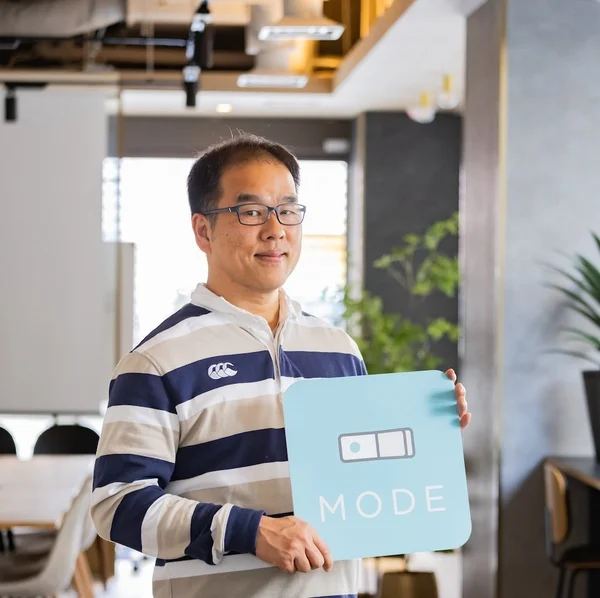Editor’s Note: This is a new Q&A series from StartUp Beat that features entrepreneurs who have successfully guided their startups (or multiple startups) to maturity. It is meant to complement StartUp Beat’s coverage of early-stage startups and an effort to provide further insight into the experiences of tech entrepreneurs.
![]() Bio: Mr. Bui is a consumer software veteran with over two decades of experience leading and developing technology for top consumer brands that focus on usability and mass market acceptance such as Amazon.com, Visto.com, JavaSoft, and Apple. While at Amazon.com, Hong’s division was the driver for development of their award winning consumer shopping experience used by millions each day. His division also helped develop Amazon’s platform that has been a model of worldwide scalability. Prior to Amazon.com, Hong co-founded Visto and was instrumental to creating widely accepted mobile computing technology to compete with the Blackberry. At JavaSoft, he is credited with development of the Java Servlet standard that has since been adopted industry wide. Hong spent 7 years at Apple where he led teams to develop highly regarded workgroup software solutions and networking technology that is today’s standard for consumer excellence.
Bio: Mr. Bui is a consumer software veteran with over two decades of experience leading and developing technology for top consumer brands that focus on usability and mass market acceptance such as Amazon.com, Visto.com, JavaSoft, and Apple. While at Amazon.com, Hong’s division was the driver for development of their award winning consumer shopping experience used by millions each day. His division also helped develop Amazon’s platform that has been a model of worldwide scalability. Prior to Amazon.com, Hong co-founded Visto and was instrumental to creating widely accepted mobile computing technology to compete with the Blackberry. At JavaSoft, he is credited with development of the Java Servlet standard that has since been adopted industry wide. Hong spent 7 years at Apple where he led teams to develop highly regarded workgroup software solutions and networking technology that is today’s standard for consumer excellence.
Memeo, a leading Silicon Valley company, partners with some of the largest consumer electronics device manufacturers in the world to build innovative software and services that allow consumers to access their personal content from any device, including iPhone, iPad, Android Phone, Android Tablet, HDTV, Google TV, Windows, Mac and Web.
SUB: What was your first entrepreneurial venture?
Bui: Visto was my first entrepreneurial venture. However, back when I was nine I realized that I could multiply my investment by selling baby goldfish to neighborhood kids and local pet stores.
SUB: What prompted you to start both Visto and Memeo? What was the inspiration behind the companies?
Bui: Visto was founded as “Roampage.” We wanted to offer a then unique push email service allowing corporate email to be accessed from outside the company firewall. In 1996, Visto offered what was the first complete synchronization PC to browser-based application suite, Visto Briefcase, which included email, a to-do list, calendar, address book, online file storage, and browser bookmarks.
Memeo was born out of necessity. My laptop was dropped by the security guard and I lost all files including my engagement and travel photos. The company co-founder later shared with me that his mother’s system had crashed and years of work files as well as cherished photo collections were lost. There were literally hundreds of back-up solutions out there; however, none of them addressed needs from a consumer perspective. Our experiences with file loss helped us design the basic pillars of Memeo. Memeo’s simple “zero-touch” back-up technology and flexible backup destinations eventually helped define the back-up industry standard.
SUB: Was there a point at which you knew both Visto and Memeo would hit it big?
Bui: Steve Jobs once said, “Software is the consumer experience.” With consumers moving rapidly to the digital world for everything from photography and music to finance and mobile communication, protection against loss of valuable data files had become paramount. Helping consumers safeguard and manage their digital files in a convenient and simple way was the focus of Memeo. It was a big validation of our success when Seagate decided to license Memeo software even after they had acquired Maxtor and Mirrar—both of which had their own versions of backup software. WD quickly followed since Memeo Autobackup was ahead in terms of simplicity and robustness.
Visto, in retrospect, was about 10 years ahead of the market. It had its fair share of highs and lows, but the turning point was when we won a patent infringement suit against RIM. It allowed the management to build out their plan to go after Enterprise and Government sectors in providing mobile security software and services. Visto/Good had positioned itself as a leader for mobile device management software, according to Gartner. And although I was one of the co-founders and co-authors of the court tested patents, it was the perseverance of the management, especially Brian Bogosian and Daniel Mendez, which made Visto’s success possible.
SUB: Was there a “tipping point” (for lack of a better term) when both Visto and Memeo really picked up steam and where they started growing exponentially?
Bui: For Visto I believe it was when the government adopted Visto’s secure mobile platform. Memeo paved the way for the back-up industry and worked with the world’s top companies to make backing up simple and affordable for millions of consumers and businesses. Memeo’s relationship with Google also catapulted it into the forefront of digital content management technology.
SUB: What were the first steps you took in establishing both Visto and Memeo?
Bui: Getting a focused, smart, and hard-working team of people together who were passionate about seeing the vision turn into a reality.
SUB: If you had it to do over again, what would the first concrete step to establishing your companies have been?
Bui: In general, I was blessed and very lucky to work with some of the most amazing people, and a culture fit is critical. Continue to be extremely vigorous on the hiring beyond the founding days.
SUB: What were the most significant obstacles to growing Visto and Memeo to maturity?
Bui: Growing pains are real and you confront them at all stages of growth. One of the hardest parts of developing your company is knowing when you have to build your team and bridge the knowledge gap. Finding and attracting the best people were the most significant obstacles.
SUB: What kinds of outside funding have you raised in your experiences with startups?
Bui: I’ve raised funds with NEA, Bessemer , Trinity, Foundry, G51.
SUB: What was the metric/milestone that indicated to you that the companies had moved past startup stage?
Bui: Visto was a startup when I left. Memeo is still a startup and it should continue to operate like one for the foreseeable future. Amazon operated much like a startup for most of the time I was there from 1998 to 2002. I don’t know if there was ever a metric or milestone that indicated when either moved past the startup stage. For me, it still feels like a startup when I get to spend most of my time building and producing.
SUB: What were the most important lessons you have learned about entrepreneurship through your experiences as an entrepreneur?
Bui: There are many lessons I have learned. One is that getting started is a tough step. So much is never accomplished simply because it’s easy to get overwhelmed with all the to-dos and fear of the unknown. When feeling this way, I like to recall a Chinese proverb: “A journey of a thousand miles starts with one step.” Only just thinking about your ideas will never amount to anything. You have to take steps and be proactive: do some research, talk to potential customers; build a prototype and seek advice. As you do this it is key to focus on the very few that are really vital to your customers and business. Before long you’ll realize how gratifying this journey is that you’ve embarked upon.








